What is Enterprise Performance Management?
Enterprise Performance Management (EPM) is a solution that sits on top of your ERP systems.
EPM is a set of tools designed to help organizations effectively manage and enhance their business performance. By bringing together data from various sources, including ERP systems, EPM allows companies to plan, budget, forecast, and report with greater accuracy and efficiency. It bridges the gap between strategy and execution, making decision-making smoother and financial processes more streamlined.
Across industries, EPM is widely adopted because it offers the insights needed to monitor performance, manage risks, and keep business goals on track. With EPM, organizations gain a unified view of their financial and operational health, making it an essential part of modern business strategy.”
To gain a clear understanding of Enterprise Performance Management (EPM), it’s important to explore several key components. Below, we outline the essential elements of EPM that will help you grasp its full scope and functionality.
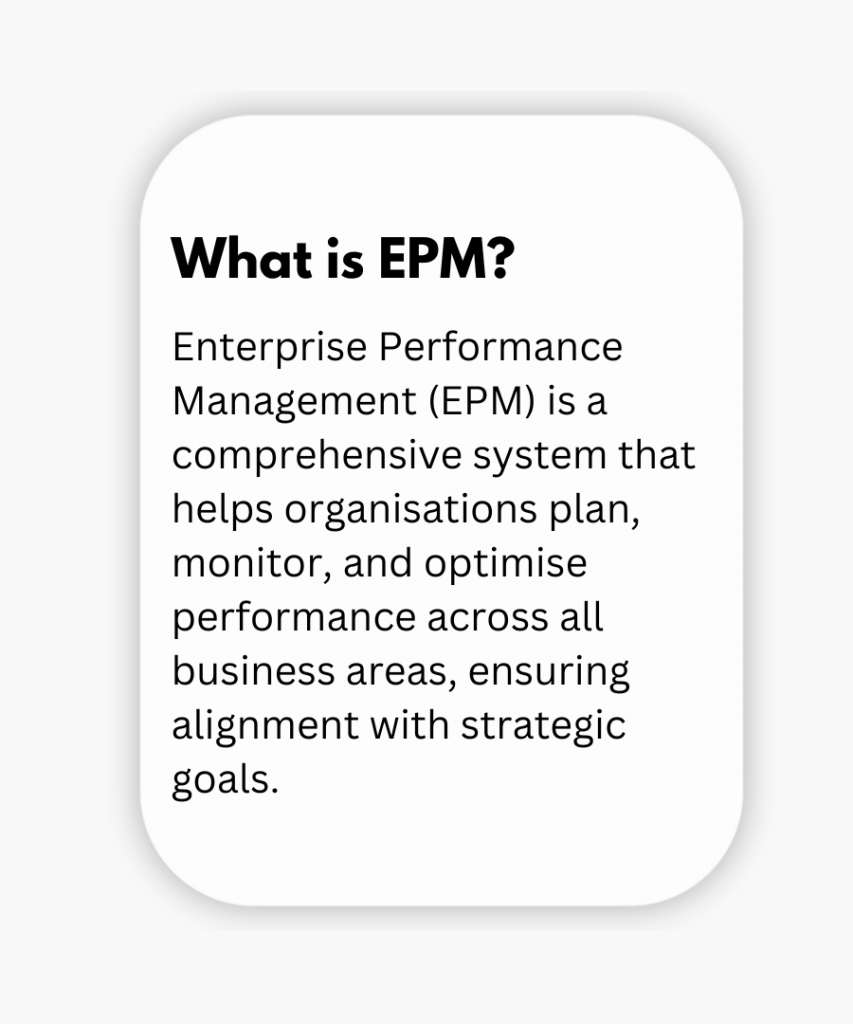
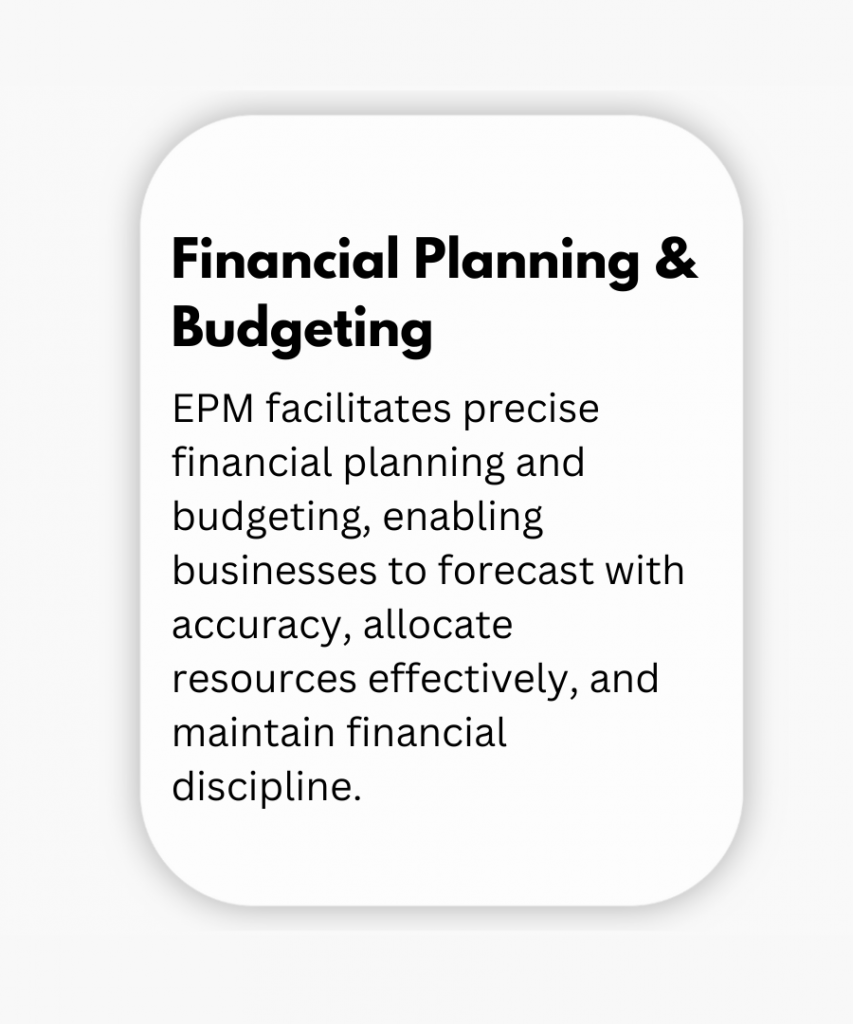
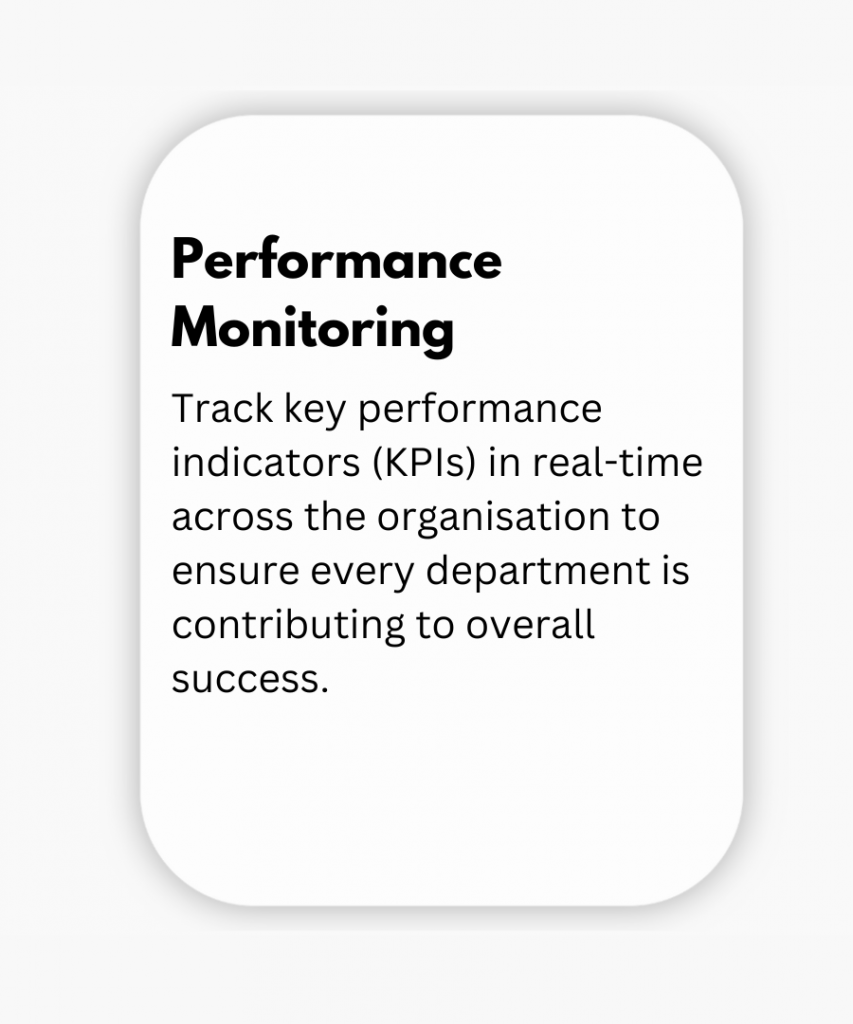
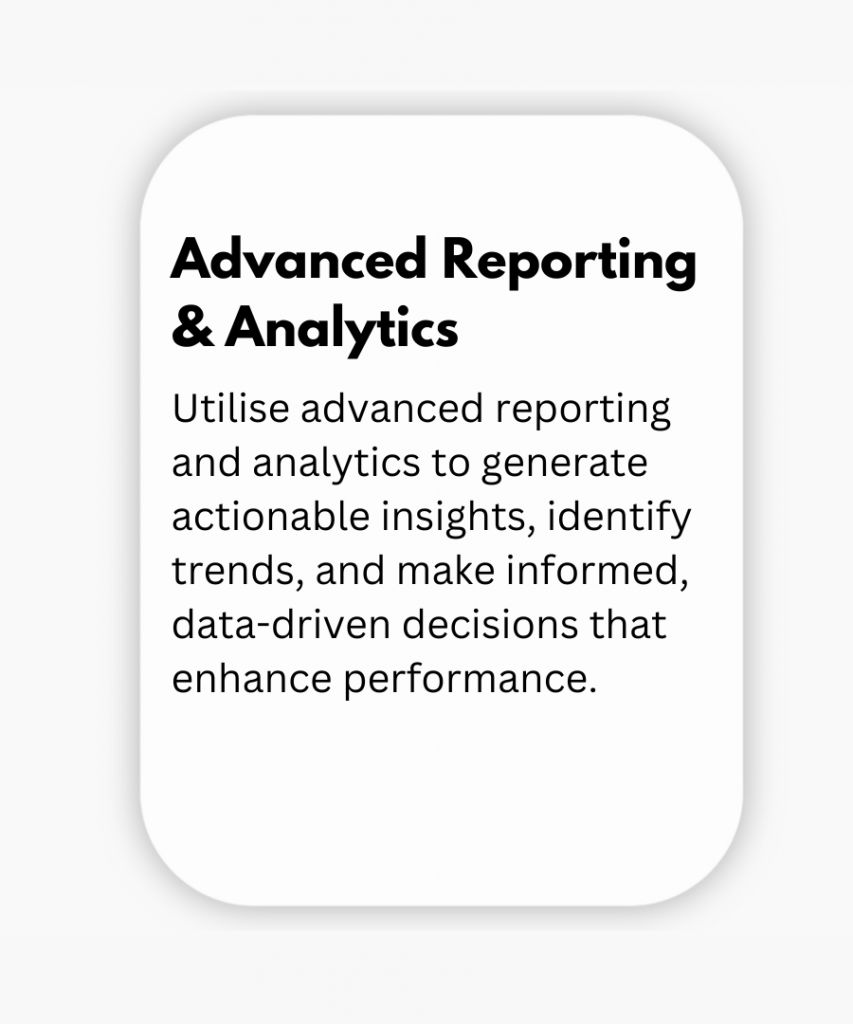

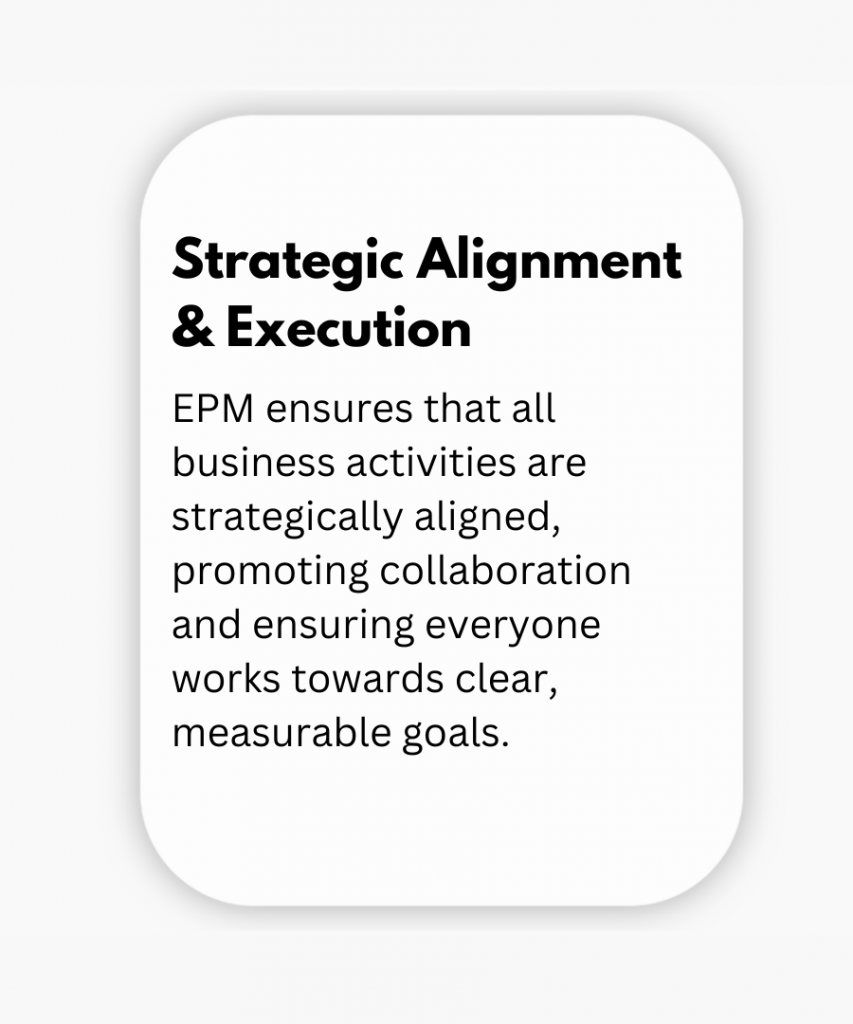
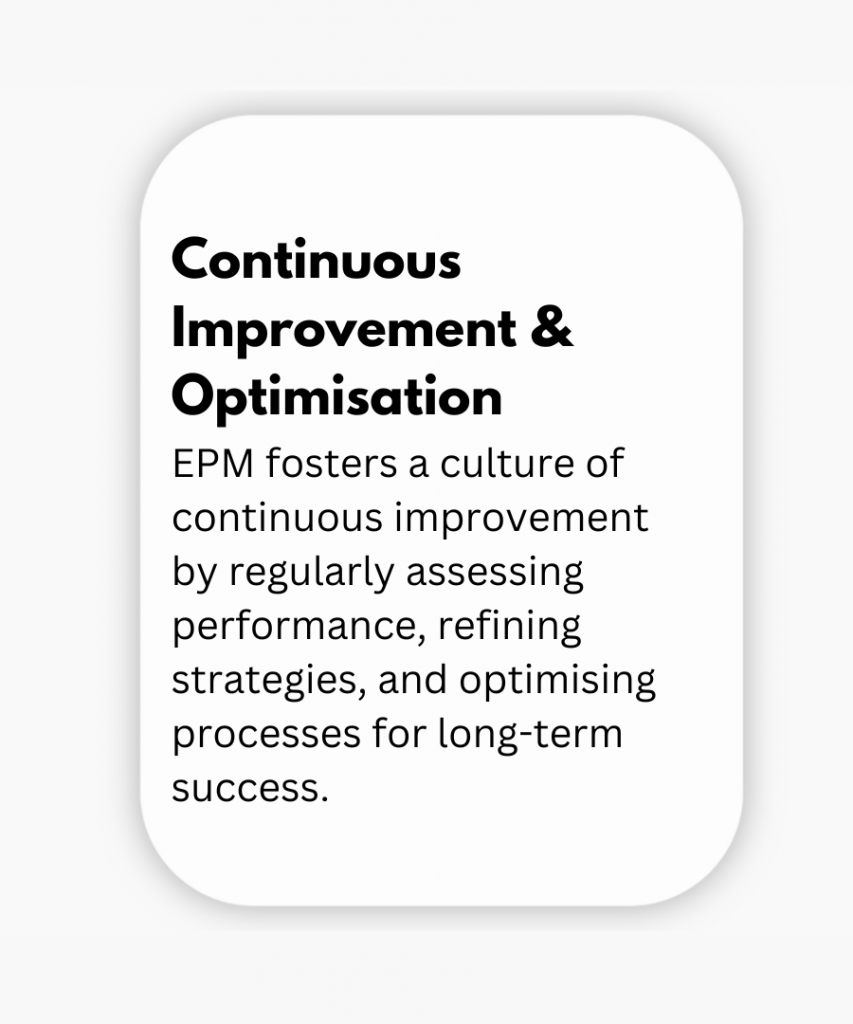
Stay ahead with EPM insights!
Want to stay informed about the latest developments in Enterprise Performance Management (EPM)? Subscribe to our newsletter to receive monthly oracle updates, expert insights, and tips on how EPM can transform your business. Learn more about how EPM can help you streamline financial processes, enhance decision-making, and drive performance.
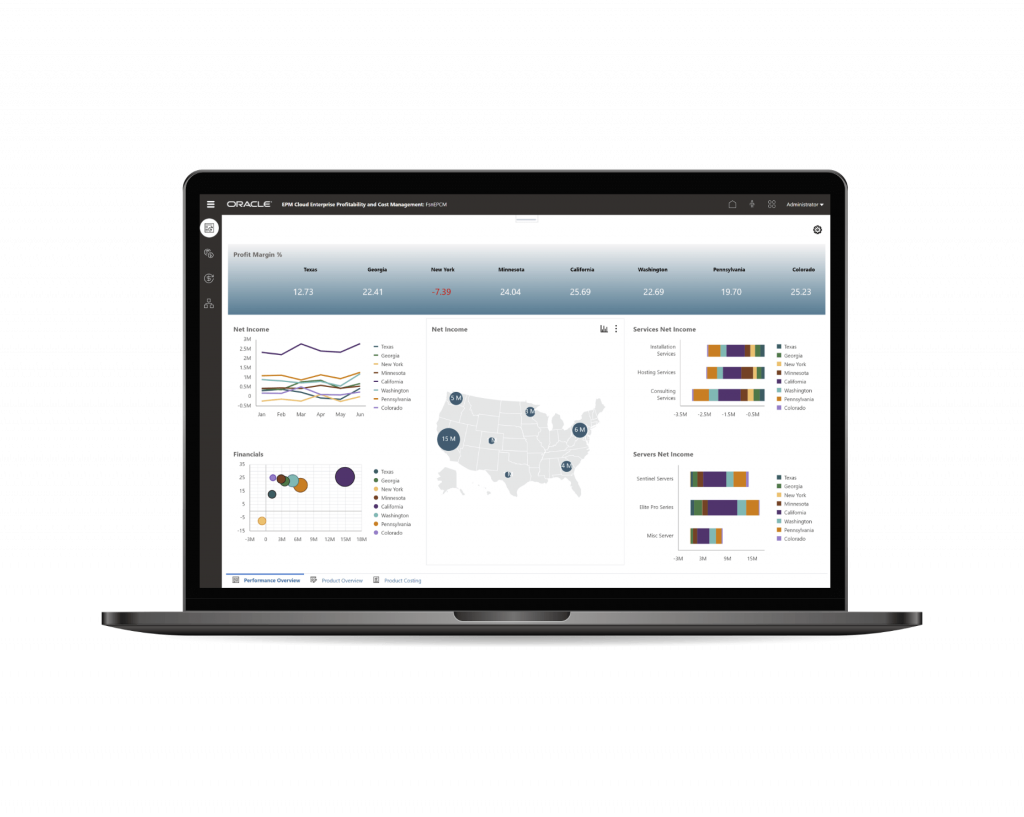
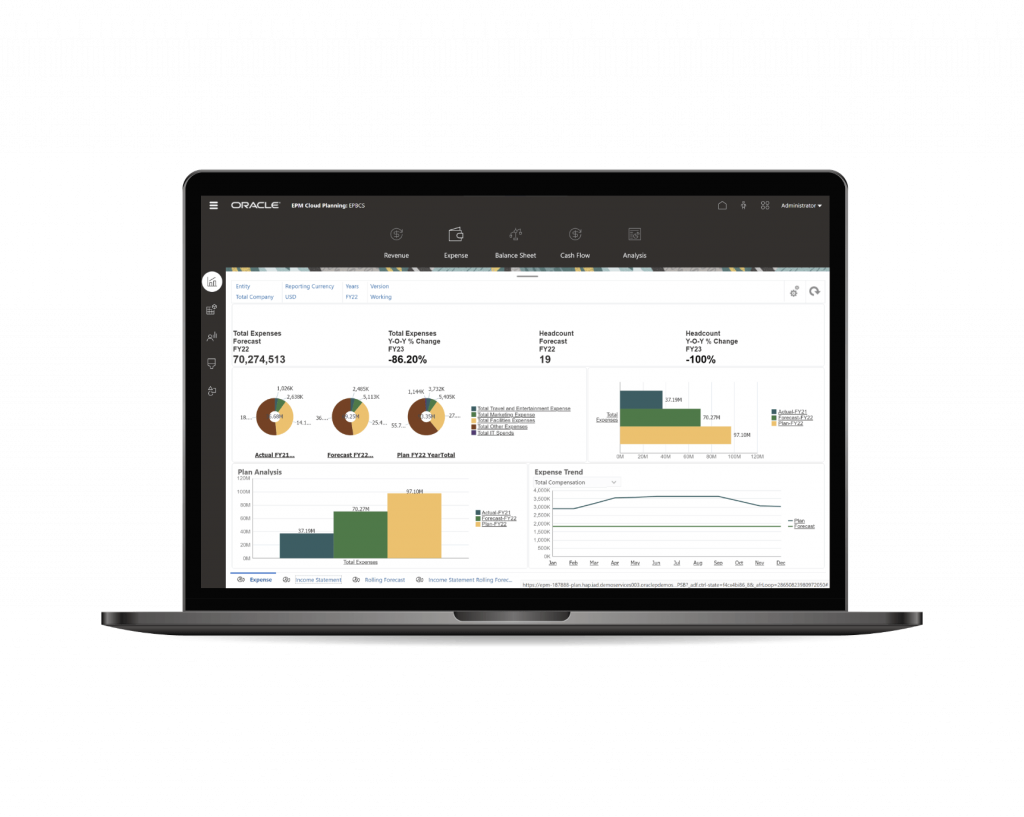
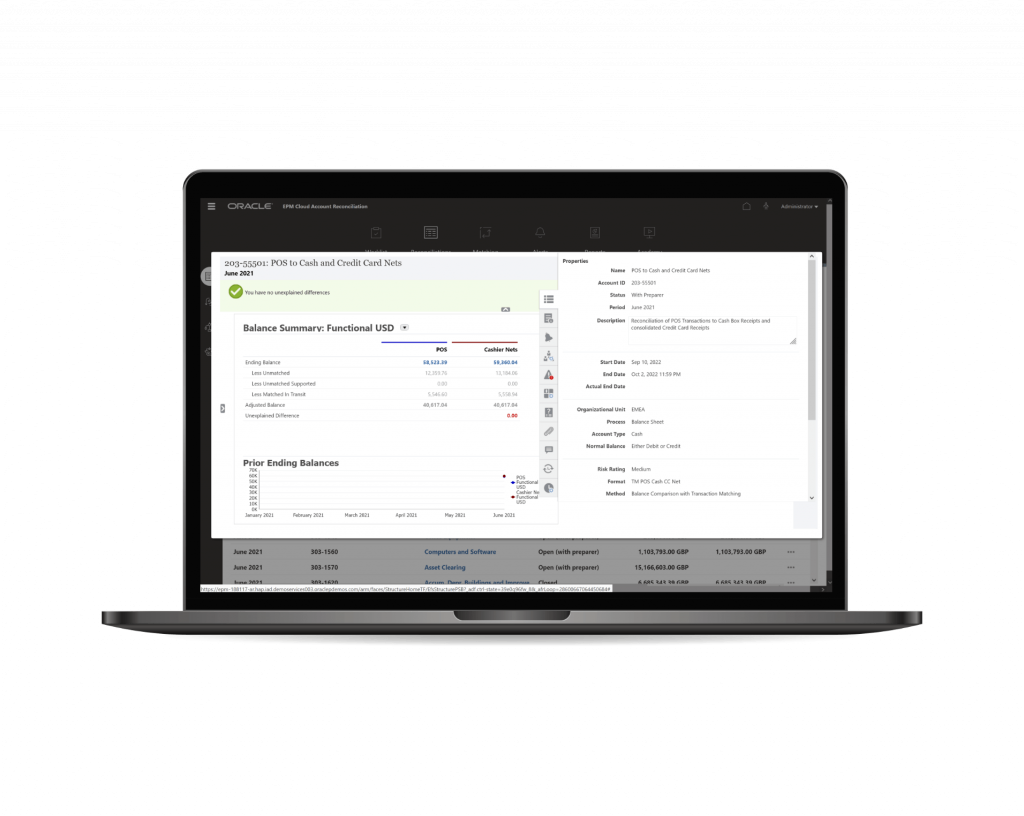
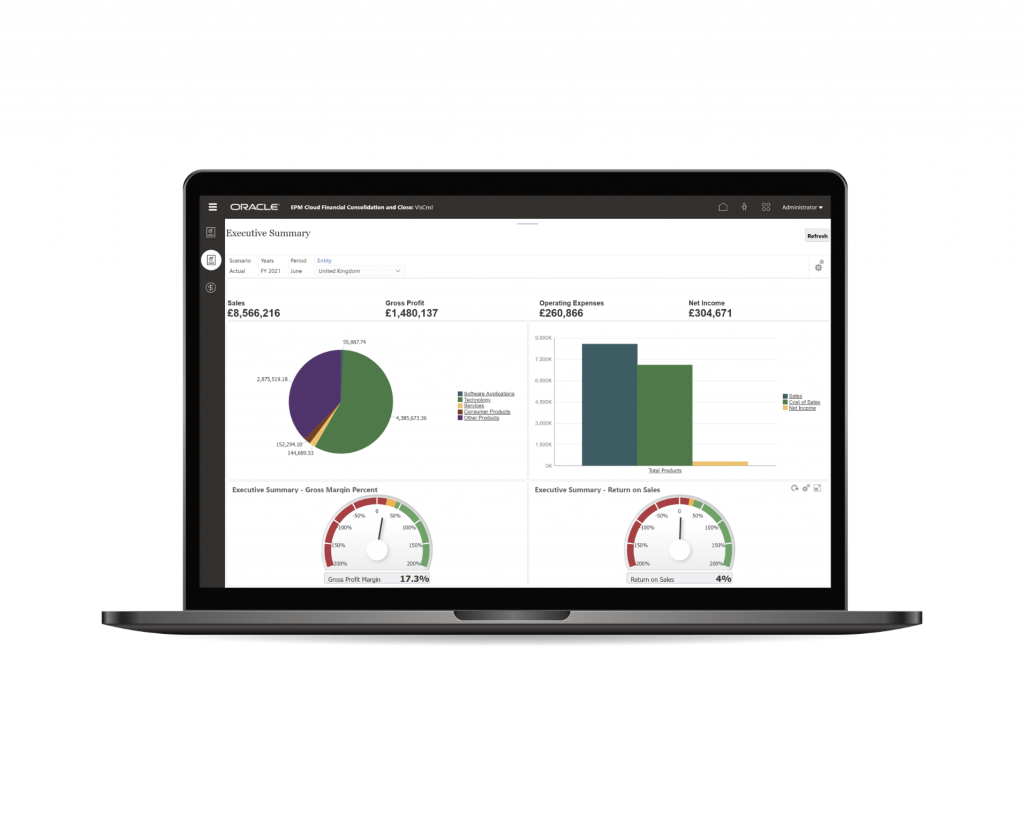
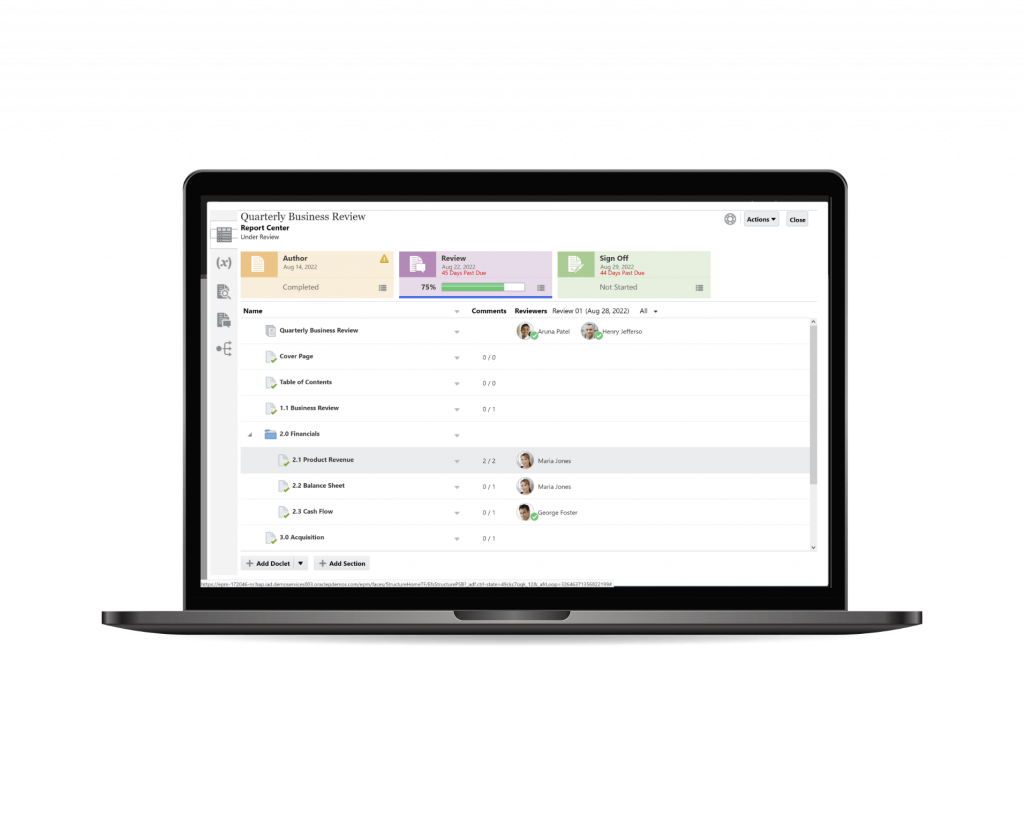
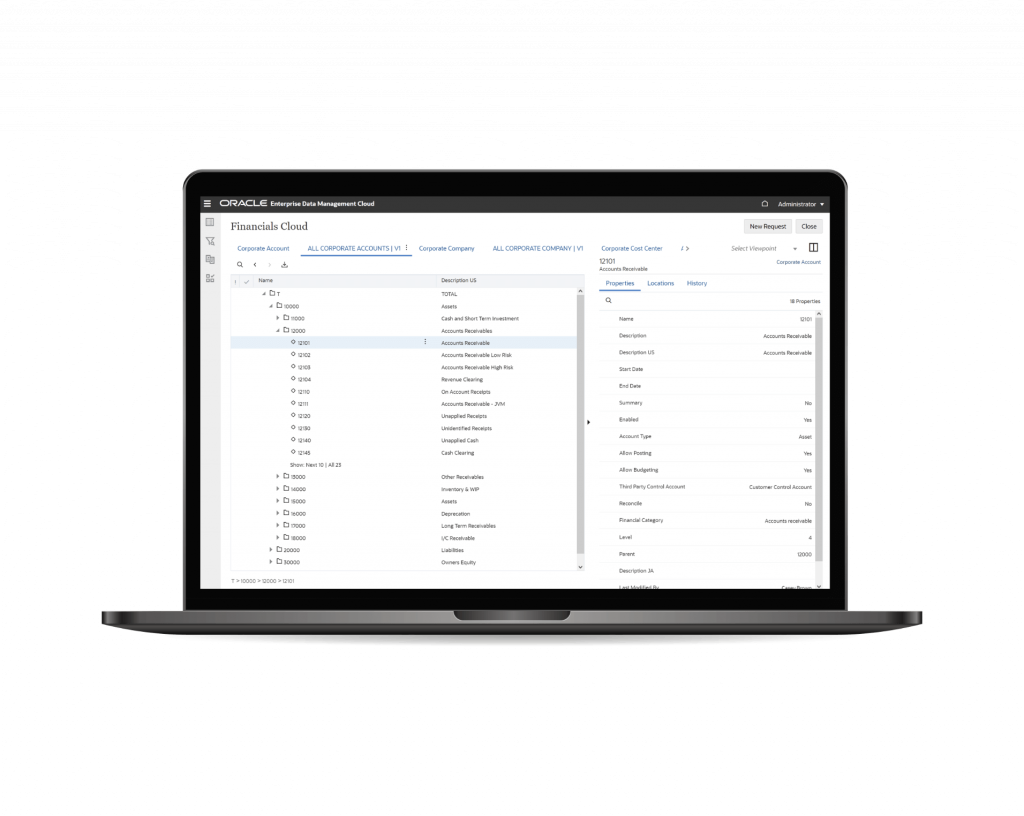
EPM applications we deliver
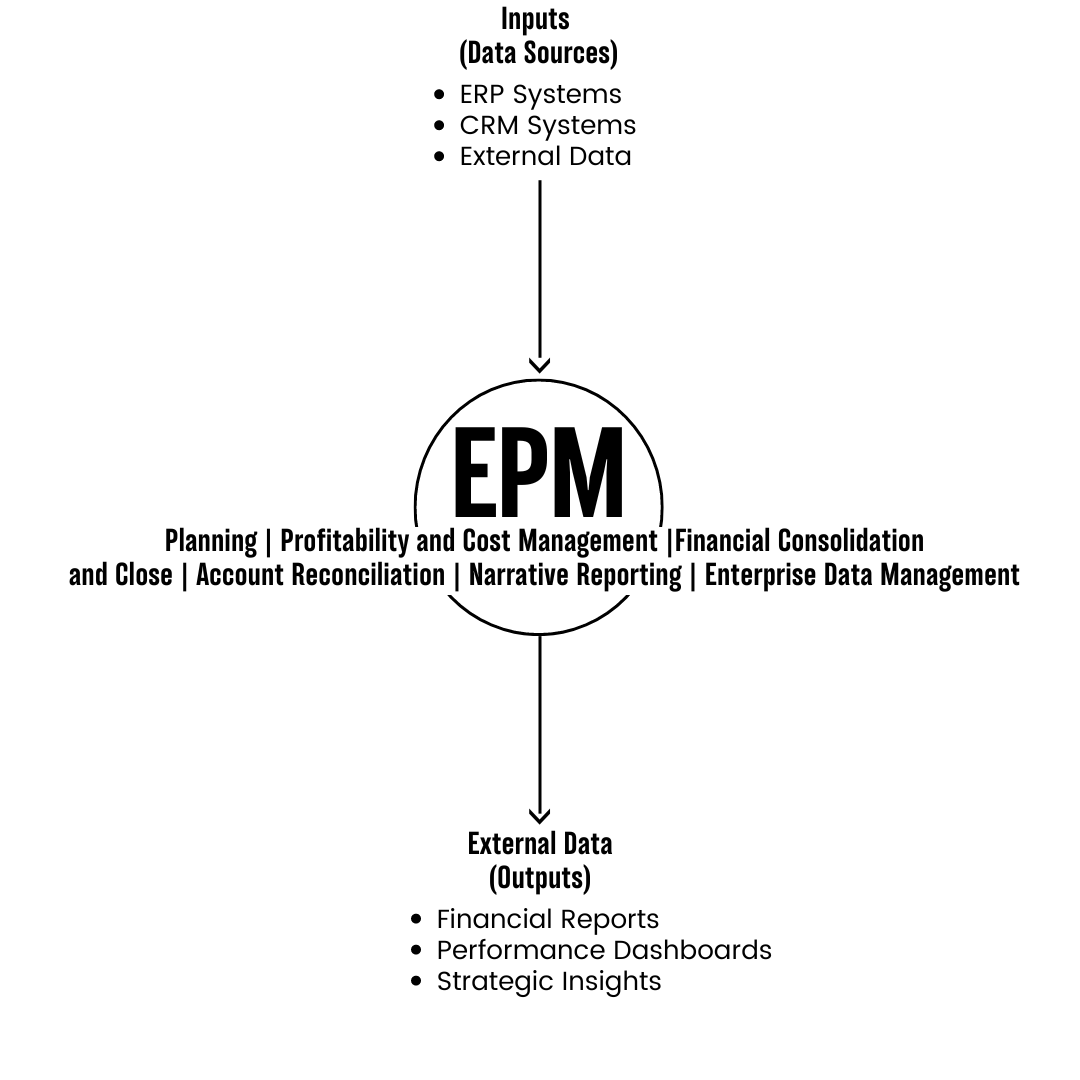
Here's a quick guide to the diagram:
1. Inputs:
- ERP Systems: These provide crucial financial and operational data.
- CRM Systems: Offer insights into customer and sales data.
- External Data: Includes market and economic indicators that impact your business.
All these inputs flow into the EPM system, where they are integrated and processed.
2. Central Node (EPM):
- What EPM Does: EPM takes in data and performs key functions such as planning, Profitability and Cost Management, Financial Consolidation and Close, Account Reconciliation, Narrative Reporting and Enterprise Data Management. This centralised system enables accurate, timely, and strategic reporting.
3. Outputs:
- Financial Reports: These provide detailed insights into your financial performance.
- Performance Dashboards: Visual tools that display key metrics and progress.
- Strategic Insights: Actionable analysis that helps you make informed business decisions.

